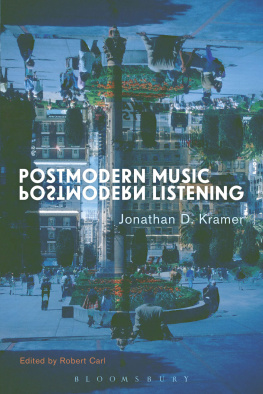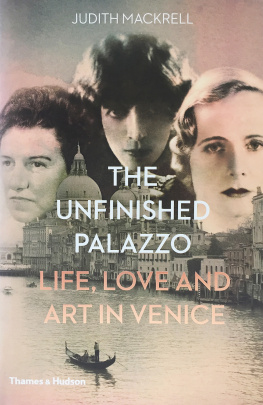Pasler Jann - Unfinished Music
Here you can read online Pasler Jann - Unfinished Music full text of the book (entire story) in english for free. Download pdf and epub, get meaning, cover and reviews about this ebook. year: 2008, publisher: Oxford University Press USA - OSO, genre: Detective and thriller. Description of the work, (preface) as well as reviews are available. Best literature library LitArk.com created for fans of good reading and offers a wide selection of genres:
Romance novel
Science fiction
Adventure
Detective
Science
History
Home and family
Prose
Art
Politics
Computer
Non-fiction
Religion
Business
Children
Humor
Choose a favorite category and find really read worthwhile books. Enjoy immersion in the world of imagination, feel the emotions of the characters or learn something new for yourself, make an fascinating discovery.

- Book:Unfinished Music
- Author:
- Publisher:Oxford University Press USA - OSO
- Genre:
- Year:2008
- Rating:5 / 5
- Favourites:Add to favourites
- Your mark:
- 100
- 1
- 2
- 3
- 4
- 5
Unfinished Music: summary, description and annotation
We offer to read an annotation, description, summary or preface (depends on what the author of the book "Unfinished Music" wrote himself). If you haven't found the necessary information about the book — write in the comments, we will try to find it.
Unfinished Music — read online for free the complete book (whole text) full work
Below is the text of the book, divided by pages. System saving the place of the last page read, allows you to conveniently read the book "Unfinished Music" online for free, without having to search again every time where you left off. Put a bookmark, and you can go to the page where you finished reading at any time.
Font size:
Interval:
Bookmark:
Unfinished Music
Every perfect work is the death mask
of its intuition.
The work is the death mask of conception.
WALTER BENJAMIN
Unfinished Music
RICHARD KRAMER


Oxford University Press, Inc., publishes works that further
Oxford Universitys objective of excellence
in research, scholarship, and education.
Oxford New York
Auckland Cape Town Dar es Salaam Hong Kong Karachi
Kuala Lumpur Madrid Melbourne Mexico City Nairobi
New Delhi Shanghai Taipei Toronto
With offices in
Argentina Austria Brazil Chile Czech Republic France Greece
Guatemala Hungary Italy Japan Poland Portugal Singapore
South Korea Switzerland Thailand Turkey Ukraine Vietnam
Copyright 2008 by Oxford University Press, Inc.
Published by Oxford University Press, Inc.
198 Madison Avenue, New York, New York 10016
www.oup.com
Oxford is a registered trademark of Oxford University Press
All rights reserved. No part of this publication may be reproduced,
stored in a retrieval system, or transmitted, in any form or by any means,
electronic, mechanical, photocopying, recording, or otherwise,
without the prior permission of Oxford University Press.
Library of Congress Cataloging-in-Publication Data
Kramer, Richard, 1938
Unfinished music / Richard Kramer.
p. cm.
ISBN 978-0-19-532682-6
1. MusicPsychological aspects. 2. MusicPhilosophy and aesthetics.
3. Composition (Music)Psychological aspects. I. Title.
ML3830.K7295 2007
781.17cd22 2007009450
This volume is published with generous support from the Manfred Bukofzer
Publication Endowment Fund of the American Musicological Society.
9 8 7 6 5 4 3 2 1
Printed in the United States of America
on acid-free paper
For Alex, Adam, and ever Martha
Every perfect work is the death mask
of its intuition.
The work is the death mask of conception.
WALTER BENJAMIN
When Walter Benjamin came to publish the aphorism that, in its two forms, serves as the motto of this book, he drew back from the notion of the vollkommene work. All works, whether measurably perfect or not, partake of this axiomatic truth: that in their completion, they die. And he drew back as well from the sense of creation as, purely, intuition. Konzeption is the broader, the more common term. But the governing idea remains a breathtaking one. Stumbling upon it in a volume of Benjamins letters, I was struck all at once how its central paradox resonates in each of the essays that follow.
The motto itself articulates no simple thesis. Each of its substantives is riddling. The death mask conjures a fleeting moment: the face frozen in death yet warm with life. At death, the features are fixed in a certain way. In this final instant of perfect resolution, of timeless calm, the vicissitudes of a life are effaced. Benjamins stark image dares us to believe that a powerful undercurrent of meaning lies in what we can reconstruct of the complex, turbulent, rich processes antecedent to this moment in which a text is fixed. We have come to speak of this, in the old clich, as a moment of birth. In the playing out of the creative process, a work is born. At the moment of its birth, something of essence in the work is muted. What happens subsequently is of little consequence, at least for an understanding of the work. If one must have a history of art, it will be a history of what lies beneath these masks. The research of contemporary art history always amounts
For years during the writing of this book, improvisationthe improvisatory as an act of musicfigured in its imagined title. It continues to figure in the text, whether implicitly or as a topic of inquiry in itself. In music, improvisation is cherished as the emblem of intuition. Ephemeral by nature, the improvisatory act vanishes, as texts do not. Much of this creative process that we are at pains to document is a quest for the evidence of the improvisatory. Indeed, the act of composition may be said to emulate the spontaneity of improvisation, to capture intuition. In the fixing of text, intuition is embalmed, masked over.
This moment at which text is fixed is itself an epistemological problem of some magnitude. At precisely what moment can the work be said to be completed, finished, vollendet? The composers whose works are studied here trouble this question each in a different way. Emanuel Bachs obsession with the further Vernderungalteration, variation of considerable substanceof works otherwise finished (and even published) now strongly implicates the act of performance as a text-defining moment, further complicating the very notion of Vollendung. For Haydn, the imagining of primal Chaos provokes the improvisatory urge to create. Beethovens compulsive sketching, drafting, rehearing of even the least ambitious of his works, concretizing the process of mind in its struggle toward the notion of the completed work, seems a model for what Benjamin is after. This idealizing of the moment of finish and the anxieties that it induces in the Romantic artist was not lost on Schubert. A considerable repertory has survived of important work left unfinished. Fragments, they are: works in eternal limbo, not quite born, nor, in Benjamins sense, yet dead. Fragments, like sketches, exist as texts. We have learned to construe them as early stages in a process. But they were not so construed at their conception. They, too, wear masks.
The final essay returns to Benjamins aphorism, exploring the contexts and circumstances that nourished its conception. In Benjamins interrogation of Goethes Wahlverwandtschaften, in his pursuit of the idea of beauty, we are offered a dark and difficult prism through which to hear again the familiar music that is the subject of this book.
For Benjamin, the very condition of finish, of completion, signifies the end of a life. Whose life? Resisting an answer, the question yet forces us to think hard about the nature of artistic creation, to imagine the ephemeral moment during which the work is separated from its author. This moment is what Benjamin seems intent upon actualizing. The separation is now labored, troubled, difficult, now imperceptible. That there exists such a moment of separation, both in the aesthetic sense, at which the autonomy of the work is established, and in the psychological sense, triggering the convoluted anxieties of the author, is an assumption that underlies each of the studies that follow. They each seek to apprehend the moment as an event, impalpable though it may seem, at which something called the work is now finished, and all the disparate evidence of creation, of the authors engagement with composition and context, is swept away, the author along with it. But it is a condition of art that the work, alive in its afterlife, is in some sense never finished, and that the evidence of its creation, and of its creator, is everywhere implicit in its text and constitutes a grain of its meaning.
Learning to live with the pleasurable discomforts of these paradoxes is the modest resolve of this book.
A good many of the ideas in this book grew from talks given at conferences and seminars. I owe debts of gratitude to Stefan Litwin, whose seminar Beethovens Sptstil. Probleme der Interpretation at the Wissenschaftskolleg zu Berlin (Institute for Advanced Study) in June 2004 provoked the essay on Beethovens Opus 109; to Richard Will and Marshall Brown for the invitation to deliver the keynote address at the annual meeting of the North American Society for the Study of Romanticism, in Seattle, August 2001, from which grew the chapter on Herder and Haydn; to Annette Richards, whose memorable conference on Emanuel Bach at Cornell in 1999 inspired the chapter on Diderot and Bach; and to Hans-Werner Kthen, whose symposium at the Beethoven-Haus Bonn in 2000 provided a lively environment for the essay on Opus 90 and the ghost of Emanuel Bach. was written for a celebration in 1998 at the Graduate Center of the City University of New York of the work of Leo Treitler, who then, predictably and to my great pleasure, subjected the essay to a penetrating inquiry of his own that only intensified the stimulation in writing it for him.
Next pageFont size:
Interval:
Bookmark:
Similar books «Unfinished Music»
Look at similar books to Unfinished Music. We have selected literature similar in name and meaning in the hope of providing readers with more options to find new, interesting, not yet read works.
Discussion, reviews of the book Unfinished Music and just readers' own opinions. Leave your comments, write what you think about the work, its meaning or the main characters. Specify what exactly you liked and what you didn't like, and why you think so.








